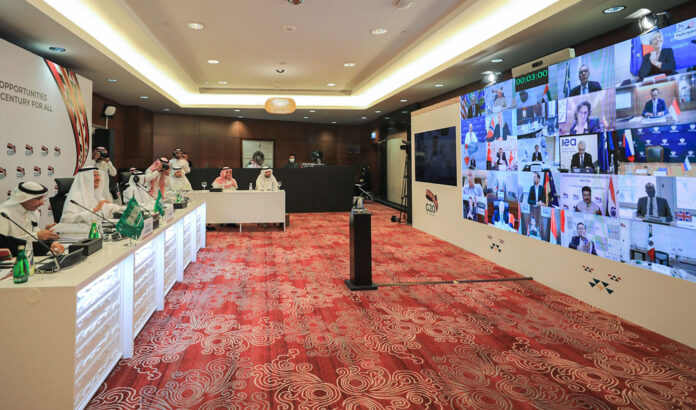Pakistan has formally sought debt relief from representatives of the G-20 nations with a pledge not to contract new non-concessional loans, except those approved under the guidance of the International Monetary Fund (IMF) and the World Bank.
The government did not indicate the debt relief in the request letters, but for the period May-December 2020 it measured the cumulative relief quantum at $1.8 billion.
Pakistan has also told the IMF, World Bank and Paris Club of its decision to pursue formal debt relief. Teresa Daban, the IMF’s resident representative to Pakistan, said last month that Pakistan had not officially sent any debt relief requests to G-20 countries.
According to the economic affairs ministry, Pakistan owes $20.7 billion to 11 members of the Group of 20 rich nations. Out of this sum, an amount of $1.8 billion would mature by December 2020, including the interest payments.
The G-20 nations declared on April 15 a moratorium on debt repayments from 76 countries, including Pakistan, during the period May to December 2020, subject to the condition that each country send a formal application.
One of the eligibility benchmarks were that the beneficiary country would not “contract new non-concessional debt during the suspension period, other than the agreements under this initiative or in compliance with limits agreed under the IMF Debt Limit Policy (DLP) or WBG policy on non-concessional borrowing.”
Pakistan will have to make $1.8 billion in repayments to its 11 members over those eight months. This includes repayments of $1.47 billion of principal loans and interest on the loans of $323 million. According to the ministry of economic affairs, $613 million of Saudi debt and $309 million of Chinese debt will also mature.
The $7.5 billion loans that the PTI government had received from China, Saudi Arabia, the United Arab Emirates and Qatar under an IMF arrangement cannot be returned during the IMF program duration. Such loans were guaranteed for just one year in order to prevent default on foreign debt commitments, but the IMF had stipulated that this money will be rolled over each year before 2022 ends the plan.
If the G-20 member countries approve the request, Pakistan will have four years to return the amount, with a grace period of one year.
Pakistan promised the G-20 leaders that it would not contract new non-concessional debt during the suspension period other than agreements under the initiative or in line with the limits decided on non-concessional lending under the IMF Debt Cap Policy or World Bank Group Policy.
An April-16 report from the IMF had projected Pakistan’s post-Covid-19 external financing requirements at $25.8 billion, with a $2 billion funding gap. The IMF estimated total funding requirements for Pakistan at $29.3 billion for the next fiscal year, and a funding deficit of $1.5 billion.
The IMF had approved $1.4 billion in emergency loans, partially bridging the expected funding gap but the sum fell short of maximum needs. Exports and international remittances from Pakistan were expected to be impacted by the “Great Lockdown,” which had put additional pressure on official international-exchange reserves.
The IMF report stated that while Covid-19 shock had increased short-term risks, with strong policy enforcement under the EFF, and continued support from multilateral and official bilateral creditors, Pakistan’s debt remained sustainable over the medium term.
The debt relief will last until the end of 2020 but the G-20 countries could consider a possible extension, taking into account a report from the World Bank and the IMF on the liquidity needs of eligible countries.



